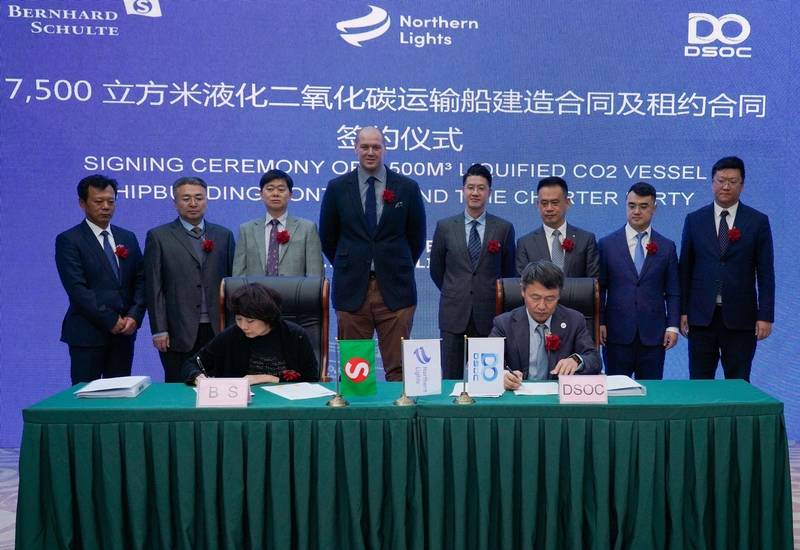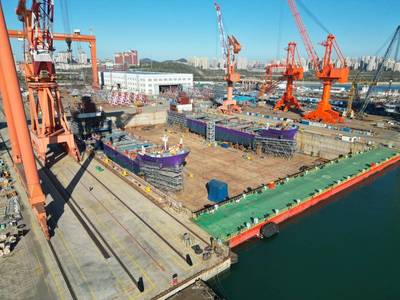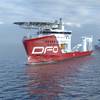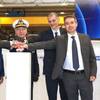CCUS: Bernhard Schulte Orders Its First CO2 Tanker
Bernhard Schulte ordered its first CO2 tanker, a newbuild to be constructed at Dalian Shipbuilding Offshore (DSOC) and to showcase technologies designed to reduce its carbon footprint. Planned for delivery in 2026, the ship is committed to a long-term time charter agreement with Northern Lights.
The newbuilding ordered now is the first ship of this type for the Bernhard Schulte fleet and the fourth CO2 carrier for Northern Lights. The joint venture, owned by Shell, TotalEnergies and Equinor, has already ordered three vessels, two already under construction at DSOC and another ordered in September this year.
“Ordering this vessel is an exciting step in the expansion of Bernhard Schulte’s fleet portfolio in an innovative future tanker segment. We are looking forward to becoming part of Northern Lights industry leading project to provide CO2 transport and storage infrastructure,” said Ian Beveridge, CEO of Bernhard Schulte.
“This deal marks another major milestone for us. CCS is a safe and efficient way to handle emissions and it is critical to meet climate targets. We are excited to see Bernhard Schulte now entering the Liquid CO2 business, as strong partnerships are required to succeed. We have strong belief in the tripart collaboration between Northern Lights JV, DSOC and Bernhard Schulte,” says Børre Jacobsen, Managing Director of Northern Lights.
Northern Lights is developing a ship-based CO2 transport solution and has implemented innovative technologies in the ship design to reduce the CO2 emissions from shipping. The primary fuel for the ships will be LNG. Combined with other proven technologies, such as wind-assisted rotor sail and air lubrication, the ships will have around 34% lower carbon footprint compared to conventional ships running on marine fuel.
Ship Facts
- Capacity: 7,500 m3 liquid CO2
- Two cylindrical cargo tanks
- Length: 130 meters
- Cargo transport conditions: maximum 19 bar(g) pressure and minimum -35°C temperature
- 34% lower carbon footprint than ships on conventional fuel
- LNG Dual Fuel, wind-assisted rotor sail and air lubrication
 Signing of the newbuilding contract for Bernhard Schulte's first CO2 ship; left: Mrs. Dongqing He, Representative Bernhard Schulte; right: Mr. Yingzhi Sun, President of DSOC. Image courtesy Bernhard Schulte
Signing of the newbuilding contract for Bernhard Schulte's first CO2 ship; left: Mrs. Dongqing He, Representative Bernhard Schulte; right: Mr. Yingzhi Sun, President of DSOC. Image courtesy Bernhard Schulte













